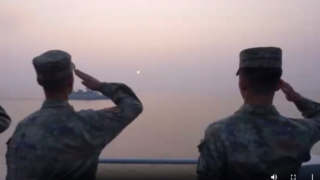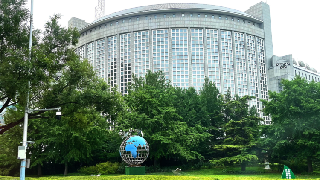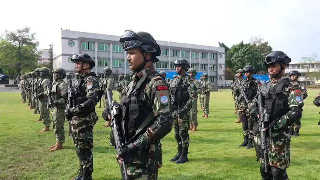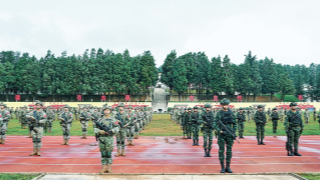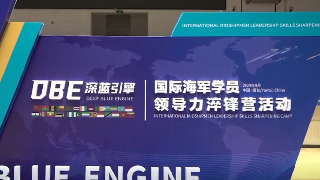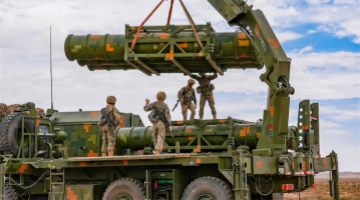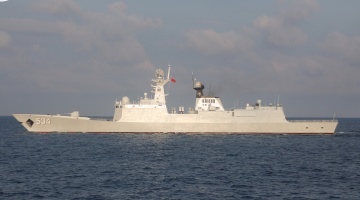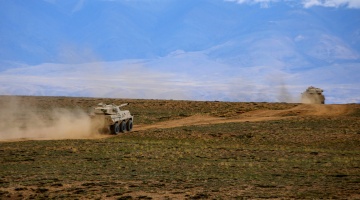By Zi Ge

A soldier assigned to the Japan Ground Self-Defense Force (JGSDF) participates in airdrop exercise at East Fuji Maneuver Area .
The ROK Defense Ministry agreed that JSDF could enter the ROK in wartime to deliver supplies to the US Forces Korea (USFK), Japanese media reported on October 9th. This decision in a way indicated the mitigation of the military estrangement between Japan and the ROK, and marked a step forward in the US-led trilateral military cooperation.
The ROK Constitution stipulates that the National Assembly has the right to declare war, send troops overseas, and authorize the stay of foreign troops in the country. But the ROK Defense Ministry recently explained that JSDM's temporary entry into USFK bases doesn't fall under the category of the Constitution-defined "short stay", so it doesn't need approval from the National Assembly. This means the USFK can invite JSDF to the Korean Peninsula as needed.
Japan and the ROK have been pushed by the Biden administration towards a so-called "reconciliation" in recent years, with their diplomatic interactions increasing especially after the trilateral summit at Camp David in August 2023, and their contacts in the military sector becoming more frequent too.
In December 2023, they separately achieved interconnectivity with USFJ and USFK's radar command and control system, enabling them to share missile early warning intelligence in a real-time manner. In June this year, the three countries' Coast Guard agencies had their first joint maritime exercise in the Sea of Japan; at the end of June, the three countries had their first joint military exercise, the "Freedom Edge" in the open sea south of the Jeju Island, covering multiple domains including the sea, the airspace, and the cyberspace. In July, the three defense ministers signed the Trilateral Security Cooperation Framework (TSCF) and decided that the three countries would take turns hosting their regular defense ministers' meeting, chiefs of staff meeting, security meeting, and other high-level meetings.
According to analysts, the recent ease of tension and increased military interactions between Japan and the ROK doesn't mean they can be forced into an alliance by the US in the near future, because the Japan-ROK relations are subject to the influence of multiple factors.
From America's perspective, the Biden administration has been pushing the so-called "integrated deterrence" strategy and trying to combine the US-Japan alliance and US-ROK alliance into a trilateral system to facilitate the integration and dispatching of military resources in northeast Asia. Yet given the historical grudge and territorial disputes between Japan and the ROK, there is no basis of mutual trust to forge an alliance between them, and the temporary improvement of relations now is mainly prompted by America's magnification of their security concerns. As the US is about to elect a new president, whether the next administration will maintain the current diplomatic push is to be seen.
From the ROK's perspective, where the Korean Peninsula is heading is very important, and Seoul is trying to augment the deterrence against the DPRK by intensifying its military cooperation with the US and Japan. But its decision to let JSDF enter the ROK under certain circumstances has already drawn extensive protests and objections within the country, mirroring the ROK public's deep-rooted dissatisfaction with and doubt of Japan.
From Japan's perspective, taking the initiative to meddle in regional hotspot issues is its old trick of breaking the limitations on its military capacity. In recent years, Japan has repeatedly exaggerated regional security threats including the Korean Peninsula nuclear issue, and has developed, in steps, the ability to attack enemy missile bases preemptively. Meanwhile, it has kept strengthening military collusion with foreign militaries within the US-led security framework, and driven the JSDF to routinely perform overseas military missions in an ever wider scope.
The Japan-ROK relations are also affected by the Asian Pacific security situation. That each of them has its own calculations makes a thorough "reconciliation" almost impossible, both from a historical and realistic point of view, limiting the depth and breadth of their military cooperation.

